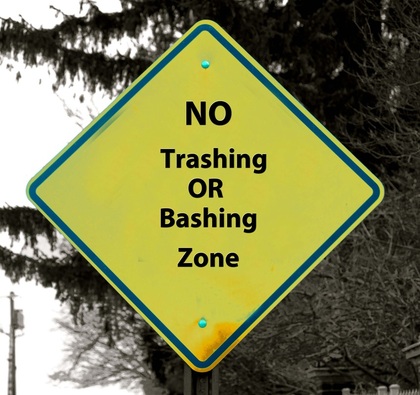
Why do temperatures continue to rise every year? Why are we fearful of and denying immigrants the opportunity for a safer and better life? Why are we fighting war after war, destroying cultures, killing innocents, and creating hatred? Why is it acceptable for America to allow tens of thousands of its friends, neighbors, sons, and daughters maimed and killed from gun violence?
I’ve heard numerous explanations for these injustices, impending calamities, and tragedies: population growth, inequality, economic stagnation, terrorism, and climate change. And no doubt each is a contributing factor to the distress our planet and its inhabitants are experiencing. But we are not innocent victims; we are active participants by dismissing and denying the past, the present, and the potential of future devastating consequences. We are the problem.
I believe the underlying cause for our self-destructive behavior is our obsessive pursuit of happiness and security. Our Founding Fathers unknowingly set us upon a quest to acquire the grail of happiness. “We hold these truths to be self-evident, that all men are created equal, that they are endowed by their Creator with certain unalienable Rights that among these are Life, Liberty and the pursuit of Happiness.” It appears we’ve become addicted to the pursuit of happiness at the expense of life and liberty for all.
As our world became increasingly secure and abundant, our values and behavior shifted from focusing on community to self-gratification. No longer was it necessary to actively participate in our communities. By creating and empowering institutions to care for our sick, extinguish our fires, protect us from our fears, and fight our wars, we removed the need to work collectively for the social interest and well-being of our neighbors, communities, and country. The untended consequences of this shift are that we are no longer “We the people,” but “I the individual.”
This shift will not take us securely into the future; it is taking us back to when our planet was inhabited by tribes each fighting for resources and significance. Polarization and segregation dominate our distressed social, economic, and natural landscape, and as “tribes” fight for control, each tribe is diminished.
Fear is stoked by tribes for their self-interest. The NRA says, “Trust no one— trust only your gun.” This has resulted in the U.S. leading the world in guns owned, gun violence, and gun killings and suicides, while gun manufacturers reap millions of dollars in profits.
The primary goal in a world of tribes is winning even at the cost of your neighbors, community and country. This deception that happiness and security can be achieved through the suppression of the “other,” makes it impossible to focus on the real threats to our security and well-being.
We stand at the tipping point in our pursuit of happiness; we are experiencing the turbulent upheaval of our protracted infatuation with self-interest, which feeds resentment and anger. This is a time that requires thoughtful and inclusive leaders, not those who are infatuated and addicted to self-interest. Our planet thrives on interdependence, not on tribalism—it requires the best of all of us.
In his book The Wise Heart, Jack Kornfield eloquently informs us of the error of our desires and thinking: “We do not possess our house, our car, or our children. We are simply in relation to them. The more tightly we cling to the idea that we ‘own or possess,’ the greater the unhappiness we reap.” With this understanding we can live as stewards, caring for things yet not being trapped by the concepts of self and possession.
The trap of Make America Great Again is set and the bait is tempting. We are told that we only need to exclude, deny, punish, and isolate to restore our addiction to happiness and security. We are told that our Founding Fathers were wrong. It’s not life and liberty for all that makes America great—it’s life and liberty for me.
America has never thrived on these self-serving ideals. In fact, America was at its worst at these times. We were at our worst when we enslaved people, and we were at our best when we fought on the shores of foreign lands to preserve freedom and to defeat totalitarianism.
It’s human to feel resentment, anger, and fear, but we cannot allow these emotions to drive us over the tipping point. They are warning signals that we must open our hearts and transform resentment into gratitude, and anger into action that fights for the safety, respect, and equality for all. And we must transform our fear into courage by coming together instead of isolating ourselves into tribes. The choice is clear: we can be our worst enemy or our best friend. The human heart will never experience happiness by fighting its true nature — all hearts are connected. We are one heart.





 RSS Feed
RSS Feed
